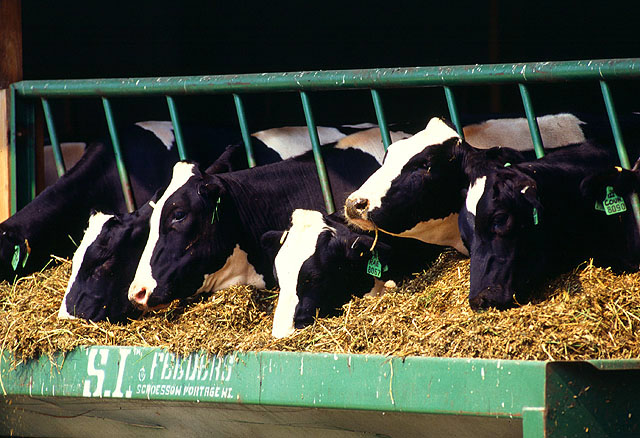
Jared Strong, Iowa Capital Dispatch
Starting next week, certain dairy cattle must be tested for avian influenza before they can be transported to a different state, the U.S. Department of Agriculture announced Wednesday.
The requirement is among several that will expand the testing, reporting and monitoring of the cattle to reduce the spread of bird flu among the animals.
The new rules follow evidence that highly pathogenic avian influenza — which is commonly spread by migrating birds — has transmitted from cow to cow and from cattle to poultry, and that infected cows might not show symptoms of illness, the USDA said. Last week, an analysis of the virus from a Kansas cow showed that it had acquired “an adaptation to mammals.”
On Tuesday, the U.S. Food and Drug Administration said tests had revealed fragments of the virus in pasteurized milk, but that they don’t pose a risk to public health.
“While we are taking this action today, it is important to remember that thus far, we have not found changes to the virus that would make it more transmissible to humans and between people,” the USDA said Wednesday.
It has been a month since the virus was first confirmed to have infected dairy cattle in Texas. The virus has now been detected in 33 dairy herds in eight states, the USDA said. Part of that spread has been attributed to the transportation of infected cows to new herds.
The cows most often recover from infection after a week or so, but their tainted milk cannot be used for commercial human consumption. The virus is often deadly for poultry and can rapidly infect flocks.
The rules set to take effect on Monday require lactating dairy cattle to test negative for influenza A before they are transported across state lines, and that requirement might be expanded to other types of dairy cattle in the future.
Labs must also report their confirmed infections of livestock to the USDA, and certain herd owners must provide details about where their cattle have been transported.
Further information about the new rules is forthcoming, and state agriculture officials declined for now to say what impact they will have on Iowa dairy farmers.
“We are still awaiting specific guidance from USDA regarding this new interstate movement order,” said Don McDowell, a spokesperson for the Iowa Department of Agriculture and Land Stewardship.
John Maxwell, a dairy farmer near Davenport, predicted that the effects for most dairies in Iowa will be inconsequential and that it’s best to be cautious and increase testing until more is known about the disease.
“We have to do tests anyway,” he said, in reference to dairy cattle he sells out-of-state. “So it would be one more test and whatever the cost it might be. One more is not the end of the world.”
The USDA has said it will reimburse farmers for testing of sick and asymptomatic cattle.
States with confirmed bird flu infections of dairy cattle include Kansas, Idaho, Michigan, New Mexico, North Carolina, Ohio, South Dakota and Texas.
A virus similar to what has infected cows has been found in poultry flocks in Kansas, Michigan, Minnesota, New Mexico and Texas, the USDA said.
